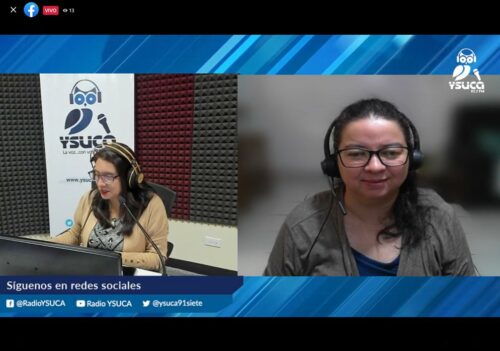Confronting toxic masculinity in El Salvador
May 25, 2022 | Donor Direct Action
Toxic beliefs such as “rape is an event that cannot be avoided in women's lives because it is their destiny," or “no one will believe you” are examples of how rape culture and toxic masculinity are pervasive and entrenched in the cultural ethos. By studying the ways violence against women has become a quotidian part of Salvadoran culture, Organización de Mujeres Salvadoreñas por la Paz (ORMUSA) is looking for ways to make a difference.
Just last week, a court in El Salvador sentenced a woman to 30 years in prison for having an abortion. Her sentence is not unusual in El Salvador where abortion is criminalized even in circumstances of rape. Draconian laws such as this add and perpetuate the belief that women have no right to bodily autonomy.

According to ORMUSA’s research, in 2019 in El Salvador, between 5000 and 6000 complaints of sexual violence were registered. However, surveys indicated that that same year 63% of Salvadoran women, or over 1.7 million women, said they had suffered sexual violence. As femicides have decreased in El Salvador, the rate of sexual violence against women remains consistent. To find out what has kept sexual violence rates the same, ORMUSA has begun to investigate three aspects of El Salvadoran culture: the media, popular culture, and the justice system.
On May 5th, ORMUSA held a conference with international speakers to discuss the prevalence of rape culture and share their findings. ORMUSA’s recommendation is as follows: “A pervasive culture of sexual violence is permeating the justice system, and the media. The promotion of equality can be an antidote and should be at the center of the proposal to promote change. Feminism offers these counterculture mechanisms. Comprehensive sexuality education is also necessary, teaching respect and a pleasurable and voluntary sexuality.”
Violence against women is not an interpersonal problem, but a cultural pandemic. Uncovering the cultural factors that normalize and permit sexual violence reveals the systemic changes that are needed. ORMUSA is leading the charge in creating a new society that values equality over the familiarity of an unsafe patriarchal system.
Join us in supporting ORMUSA’s groundbreaking work and long-standing commitment to ensuring the safety and well-being of Salvadoran women.

